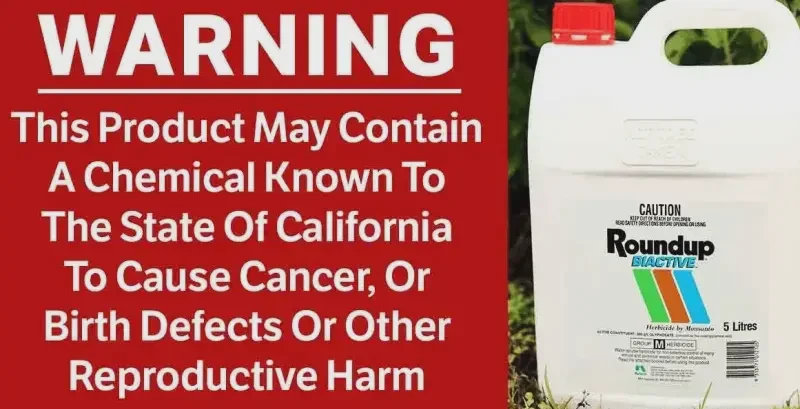Glyphosate cancer warning rejected: US appeals court rebuffs California’s attempt to require label that conflicts with global consensus that the herbicide is safe as used
Glyphosate cancer warning rejected: US appeals court rebuffs California’s attempt to require label that conflicts with global consensus that the herbicide is safe as used


A U.S. appeals court recently ruled that California lacks the authority to enforce a regulation mandating cancer warnings on glyphosate, the main active compound in Monsanto’s widely used herbicide Roundup, which was acquired by Bayer in 2018. The Ninth Circuit ruled Nov. 7 that the most recent warning issued by the state of California perpetuates the assertion that the chemical is hazardous, a claim deemed “at best disputed,” Law360 reported.
The Ninth Circuit’s split panel upheld a summary judgment by a California federal judge, affirming the invalidity of the state’s updated glyphosate safe harbor warning. The published opinion emphasized that the most recent warning would compel companies to communicate a “controversial, fiercely contested message that they fundamentally disagree with,” rendering it unsustainable.
The panel underscored the absence of a scientific consensus regarding glyphosate’s carcinogenic properties, noting that although the International Agency for Research on Cancer (IARC) identified it as a probable human carcinogen in 2015, this viewpoint is not universally accepted within the scientific community.
Consequently, the proposed warning stating that “glyphosate is known to cause cancer” was deemed contentious and not purely factual, as the term “known” carries legal nuance not readily apparent to consumers without context.
In light of the lack of unanimity on the chemical’s impact, the panel asserted that California can only mandate commercial speech if it satisfies the requirements of intermediate scrutiny. The court concluded that none of the proposed glyphosate Proposition 65 warnings met these criteria, rendering the application of the warning unconstitutional.
This is an excerpt. Read the original post here

 | Videos | More... |

Video: Nuclear energy will destroy us? Global warming is an existential threat? Chemicals are massacring bees? Donate to the Green Industrial Complex!
 | Bees & Pollinators | More... |

GLP podcast: Science journalism is a mess. Here’s how to fix it

Mosquito massacre: Can we safely tackle malaria with a CRISPR gene drive?

Are we facing an ‘Insect Apocalypse’ caused by ‘intensive, industrial’ farming and agricultural chemicals? The media say yes; Science says ‘no’
 | Infographics | More... |

Infographic: Global regulatory and health research agencies on whether glyphosate causes cancer
 | GMO FAQs | More... |

Why is there controversy over GMO foods but not GMO drugs?

How are GMOs labeled around the world?

How does genetic engineering differ from conventional breeding?
 | GLP Profiles | More... |

Alex Jones: Right-wing conspiracy theorist stokes fear of GMOs, pesticides to sell ‘health supplements’




 Viewpoint — Fact checking MAHA mythmakers: How wellness influencers and RFK, Jr. undermine American science and health
Viewpoint — Fact checking MAHA mythmakers: How wellness influencers and RFK, Jr. undermine American science and health Viewpoint: Video — Big Solar is gobbling up productive agricultural land and hurting farmers yet providing little energy or sustainabilty gains
Viewpoint: Video — Big Solar is gobbling up productive agricultural land and hurting farmers yet providing little energy or sustainabilty gains Fighting deforestation with CO2: Biotechnology breakthrough creates sustainable palm oil alternative for cosmetics
Fighting deforestation with CO2: Biotechnology breakthrough creates sustainable palm oil alternative for cosmetics Trust issues: What happens when therapists use ChatGPT?
Trust issues: What happens when therapists use ChatGPT? 30-year-old tomato line shows genetic resistance to devastating virus
30-year-old tomato line shows genetic resistance to devastating virus California, Washington, Oregon forge immunization alliance to safeguard vaccine access against federal undermining
California, Washington, Oregon forge immunization alliance to safeguard vaccine access against federal undermining The free-range chicken dilemma: Better for birds, but with substantial costs
The free-range chicken dilemma: Better for birds, but with substantial costs ‘You have to treat the brain first’: Rethinking chronic pain with Sanjay Gupta
‘You have to treat the brain first’: Rethinking chronic pain with Sanjay Gupta
